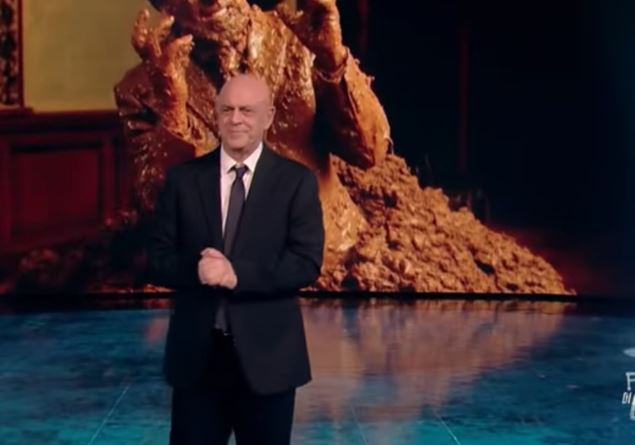Maurizio Crozza during the imitation of Pope Leo
A recent sketch by Maurizio Crozza in his satirical program Brothers of Crozza broadcast on Friday evening on Nove depicted Pope Leo as a leader who is struggling, who is afraid even of his shadow and who does not take decisive positions (“War is a bad thing”, says Crozza-Leone XIV generically).
Perhaps in this the comedian follows – or creates? – a certain vulgate. But is it really like that? If we look more closely, in recent days the new Pontiff, now in his sixth month of pontificate, has instead made a series of strong and incisive statements.
Touching on highly topical issues without beating around the bush. Let’s call them back quickly. He told the members of the National Anti-Usury Council (18 October) that «usurious financial systems can bring entire populations to their knees»: a value judgment, not exactly light-hearted, on the economic system that creates hunger and death for millions of men.
On 20 October he met with a group of victims of abuse – an issue on which he had worked decisively and transparently already as a bishop in Peru – and to the Philippine bishops (23 October) he reiterated «no tolerance for any form of abuse in the Church», asking for the implementation of essential policies and practices that «(…) promote a culture of welfare and safeguard “these little ones” of the Lord». Finally, and this is the most substantial and articulated speech so far since the beginning of the pontificate, speaking to the participants in the World Meeting of Popular Movements (23 October), legacy of Pope Francis, he touched on a wide range of burning issues: from the sacred rights of the “3Ts” (tierra, techo, trabajo: land, roof, work) to the “tragedy of peoples stripped, robbed, plundered and forced into poverty”, from the “idolatry of profit” which excludes millions of men and creates serious inequalities and social injustices to the climate crisis, from gambling addiction to the “idolatry of the body”, from addiction to opioids (he mentioned fentanyl, the drug of death) to coltan and lithium (the “raw material” of smartphones). But it is in the denunciation of the “abuse of vulnerable migrants” that the strongest words came: here “we are not witnessing the legitimate exercise of national sovereignty, but rather serious crimes committed or tolerated by the State”, he chanted.
He denounced the adoption of “increasingly inhumane – even politically celebrated – measures to treat these “undesirables” as if they were garbage and not human beings.” The references, implicitly, are very clear.
But Pope Leo naturally looks at current events through the filter of the Gospel, the commandment of love and the social doctrine of the Church.all explicitly mentioned and the profound motivation for each complaint, as well as the appeal to an ethic of responsibility (a term which, incidentally, frequently returns in his speeches). In short, not exactly words from a low profile Pontiff.


